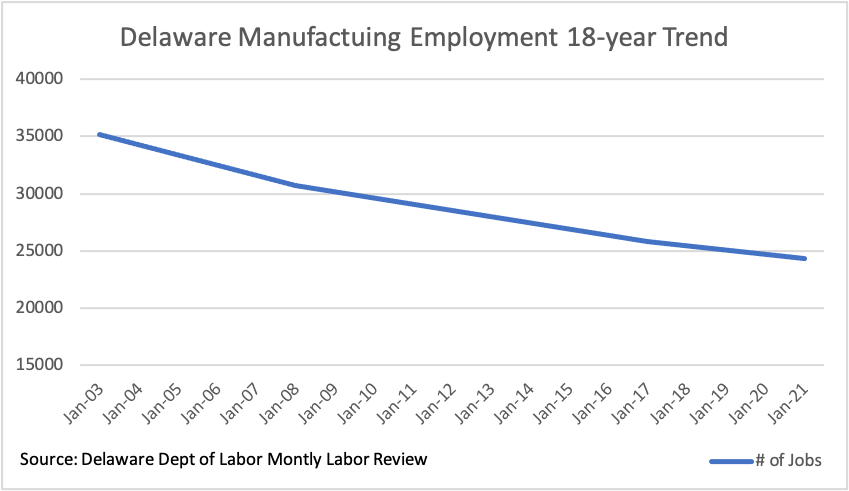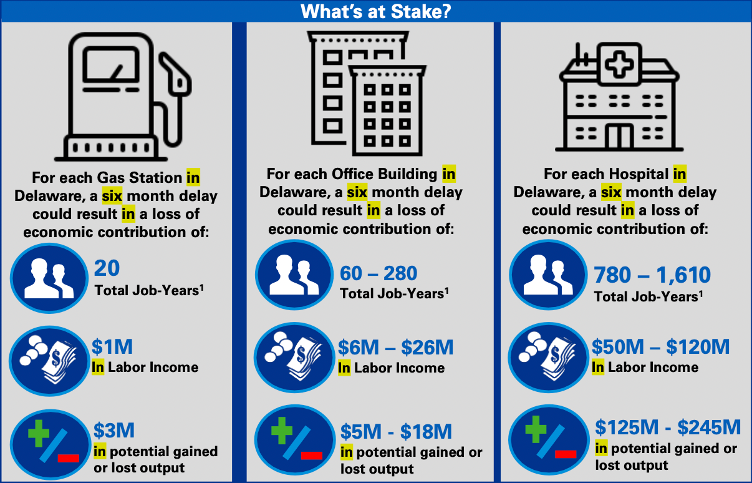Preparing for Delaware's Manufacturing Opportunity
But, all is not lost; Delaware has an opportunity to "restock" the lake with fish. Northern Delaware has over half a dozen former industrial sites waiting to be cleaned up and waiting for infrastructure upgrades. By making a one-time investment from one-time federal funds into these sites, Delaware can create a magnet for private sector business investments in these locations. Imagine close to a dozen industrial sites ready for new, clean American manufacturing.
This true infrastructure investment would be a good start, and the next step will not cost any money. Delaware needs to dramatically improve its permitting process for business site investments. This requirement was made clear in a 2019 report released by the Delaware Business Roundtable on Delaware's job-killing permitting process.
As stated in the report, "The permitting process plays an important role within the site selection process. Site selectors and investors often view the process as a barometer for measuring how business-friendly or supportive a state or local community is to economic development and new investment." And Delaware is viewed as unfriendly. As a matter of fact, one national manufacturing site selection expert stated that "Delaware is not on anyone's list."
Adjacent states can often complete site and business permitting in six months. In Delaware, it can take as long as two years. Job creators have options, and they are opting to go to other states where they can get their businesses operating in one-quarter of the time than it takes in Delaware. The proof of Delaware's failure is in the continued decline in our manufacturing employment, while nationally, manufacturing has been growing as the US continues to on-shore production from China.
Delaware's site and business permitting process could be quickly streamlined by reassigning a few State employees into "permitting-process concierges" who would keep track of the status of major projects (e.g., over $5 million in investment). At the same time, the State should create a government website "dashboard" giving the status of all aspects of investments in the permitting process detailing when permits were submitted, the amount of time waiting for initial comments, and what agency is currently holding a permit (and for how long). These two steps - the concierge and the dashboard - would bring transparency and accountability to a very diffuse process.
As seen in the diagram below, the efficiency gains and job growth tax benefits would create a windfall for Delaware - helping to restock our "lake with fish."

